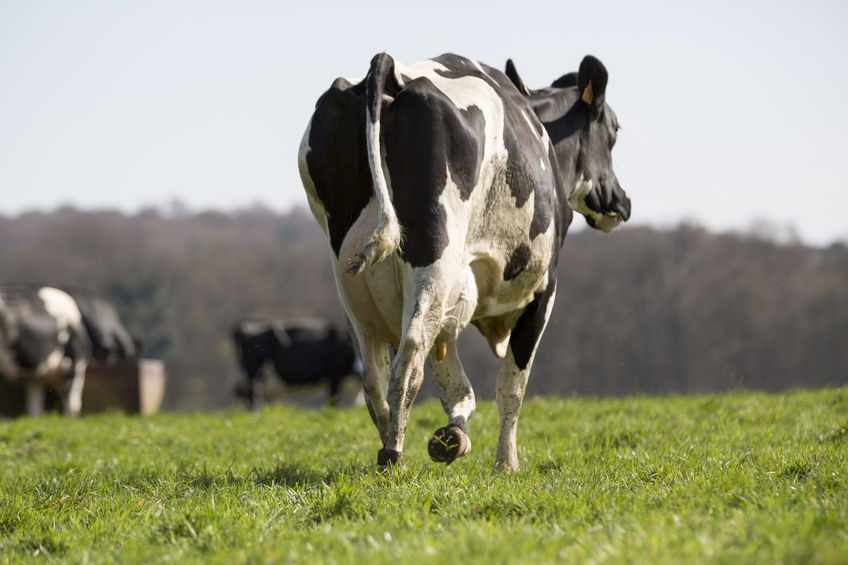
A new report has highlighted the significant progress the dairy industry has made in efforts to reduce its environmental footprint, including a 24% reduction in greenhouse gas emissions associated with milk production.
The Dairy Roadmap 10th anniversary report was launched at the House of Commons on Tuesday evening (22 May).
Speaking to Members of Parliament and leading dairy sector figures, Dairy UK Chairman Paul Vernon highlighted the progress the sector has made over the past decade.
He outlined future plans to ensure that the British dairy supply chain continued to be world-leading in environmental sustainability.
The Dairy Roadmap is a cross-industry initiative that aims to improve the environmental sustainability of the UK dairy sector whilst ensuring continued prosperity.
The 10th anniversary report highlights efforts that have been taken both on farms and in dairies since the Dairy Roadmap was founded.
The British dairy sector has reported a marked improvement in its environmental footprint, not only reducing the emission of greenhouse gases, waste, and other pollutants but also improving the efficiency with which it consumes water, energy, and other resources.
Efficiency
The UK is currently the 3rd largest producer of milk in the Europe and the 10th largest globally.
The sector employs more than 70,000 people in the UK, represents 15% of the value of agricultural produce in the UK and accounts for an estimated £8.8 billion in sales at wholesale.
The 2018 report celebrates milestones achieved over the past decade including; a 24% reduction in greenhouse gas emissions associated with milk production; a 24% improvement in water efficiency; an 18% improvement in energy efficiency; 85% of HDPE milk containers now recycled; and a decrease in the proportion of waste sent to landfill from 35% to only 4%.
The report states that this isn't the end, and progress is still to be made towards environmental sustainability.
It also explores the next steps in the Dairy Roadmap’s evolution to consider how it aligns with national commitments and global sustainability initiatives, such as the Dairy Sustainability Framework and the United Nations Sustainable Development Goals.
'Great strides'
Speaking at the parliamentary launch, George Eustice MP, Minister of State for Agriculture said the dairy industry has made "great strides" in reducing its environmental footprint
“It is great to see their ongoing progress to further increase the sustainability of this vital industry,” Mr Eustice explained.
“As the UK’s largest agricultural sector, the industry has a major role to play in delivering our ambitious 25 Year Environment Plan and I look forward to working with Dairy UK to deliver a bright future for our farmers, processors and the environment.”
NFU dairy board chairman Michael Oakes said the report highlights the significant environmental progress dairy farmers have made over the last decade driven in part by ambitious targets set by the Roadmap.
“The achievements of the past 10 years stand testament to the hard work and commitment of our dairy farmer members to meet these environmental ambitions,” he said.
“Looking ahead, in light of our commitment to ambitious new initiatives like the Dairy Declaration of Rotterdam, we will continuously review future targets to ensure that the contribution of dairy farmers to the Dairy Roadmap remains ambitious and relevant to the range of sustainability challenges ahead.”
Ammonia emissions
The report follows comments by government on how the farming industry needs to take more steps to tackle ammonia emissions.
Defra Secretary Michael Gove has announced for the first time that “concerted action” will be taken to tackle ammonia emissions stemming from the industry.
Publishing the Clean Air Strategy on Tuesday (22 May), Defra says the agricultural industry is responsible for 88% of ammonia emissions.
Farmers will now be required to invest in the infrastructure and equipment that will reduce emissions.
